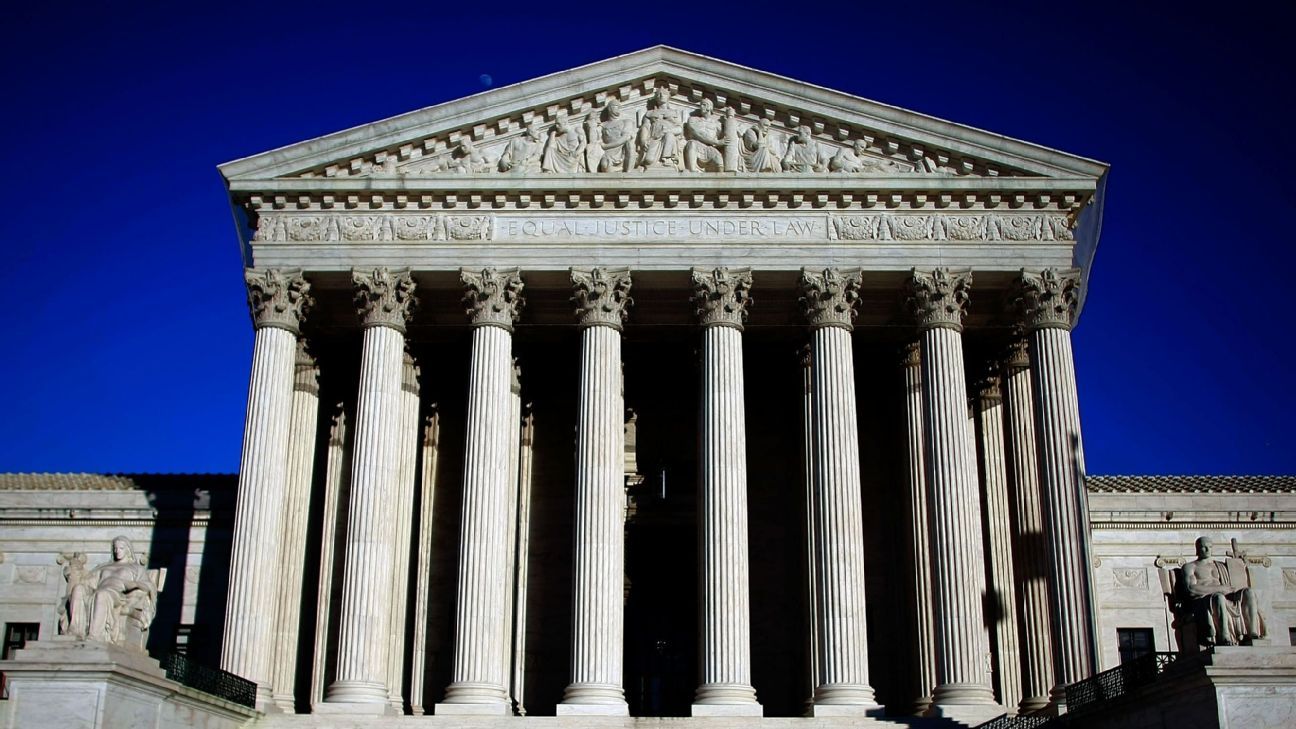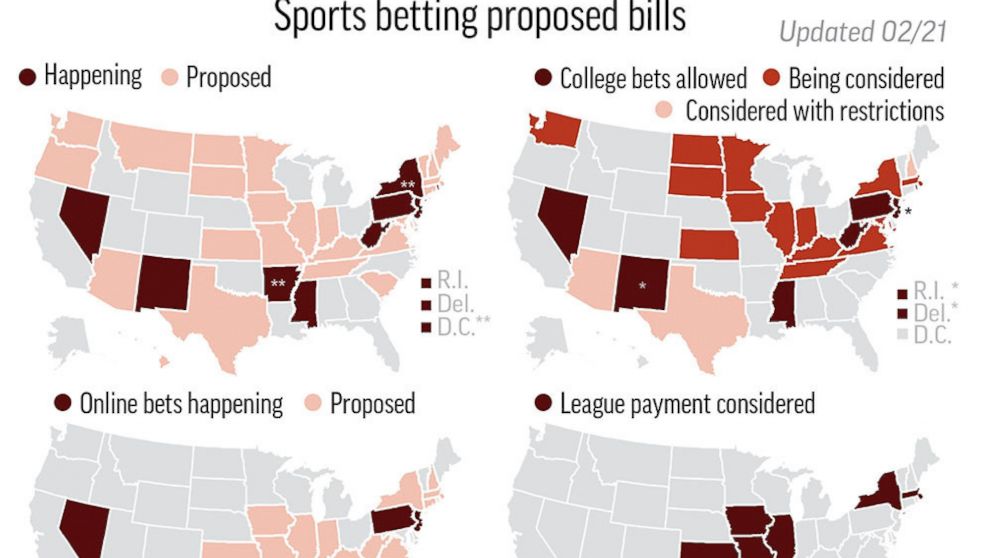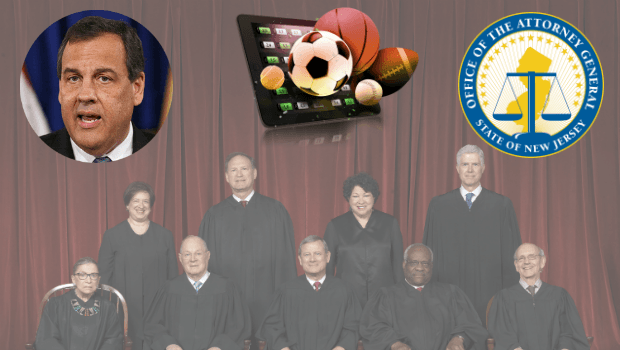- Online Gambling Us Supreme Court Forms
- Us Supreme Court Reverses Online Gambling
- Online Gambling Us Supreme Court Case

CHERRY HILL, N.J. (AP) — In the year since the U.S. Supreme Court cleared the way for every state to legalize sports betting, a regional divide has opened as states decide whether to expand their. The Supreme Court specifically ruled that one particular federal gambling statute – the Professional and Amateur Sports Protection Act – violated the 10th Amendment of the U.S. Constitution (often. Supreme Court ruled in favor of New Jersey, which had challenged the Professional and Amateur Sports Protection Act (PASPA), a law enacted in 1992 that confined sports betting to Nevada.
The recent Supreme Court decision legalizing sports betting kept analysts busy analyzing, writers frantically writing, and bettors eager to bet.
The opinion was a win for states rights. And while the overturning Professional and Amateur Sports Protection Act (PASPA) was specific to sports betting, the challenge was really about whether Congress can legislate how states act.
In its ruling, the Supreme Court opened the door for federal legislation addressing sports wagering. That doesn’t mean the government will legislate sports betting. It merely says they can and if they do it will likely be constitutional.
For now, though the Supreme Court opened the door for legalized sports betting throughout the United States. And while that is great news for sports enthusiasts, it is still not a free and open market.
Here are five things the Supreme Court decision didn’t do.
1. It did NOT legalize nationwide sports betting
While the decision opens the door for legalized sports betting, it does not change the legality of sports wagering. The Supreme Court gave the power to the states.
It’s been one week since the decision and no legal sports bets have been wagered outside of Nevada, where sports betting was allowed under PASPA.
Ahead of the decision, a few states moved forward and passed laws to address sports betting. Since the ruling, more states have taken up the topic.
For instance, New Jersey, the state that challenged PASPA, has an unregulated sports betting law on the books. Officials are introducing legislation to regulate the activity and includes a bad actor clause for any entity that accepts a bet before the legislation is complete. Key officials are pushing for a June 7 vote.
And while New Jersey is moving fast, Delaware might be the first state to accept a legal sports bet outside of Nevada. Delaware confirmed that existing laws put the state in a position to accept sports wagers almost immediately.
The team at Legal Sports Report are keeping track of the national sports betting landscape. To find out what is happening in a specific state, visit the Sports Betting Bill Tracker.
2. It did NOT legalize sports betting across state lines
The Interstate Wire Act of 1961 prohibits bets and the transfer of gaming information between states.
It brings into question how officials will interpret the Wire Act post-PASPA. The Wire Act exempts the transmission of information that supports the placing of wagers in states where sports betting is legal. It does not, however, exempt the bet.
As a side note, poker is different than sports betting. The combination of poker player pools between Nevada, New Jersey, and Delaware falls outside of the scope of the Wire Act.
New York sought clarification in 2011 and the Department of Justice responded:
“Interstate transmissions of wire communications that do not relate to a ‘sporting event or contest’ fall outside the reach of the Wire Act.”
The Wire Act was enacted to help support the gambling laws in each state. It seems likely at some point in the future that the Wire Act will be challenged to allow multi-state sports betting between states that legalized the activity. For now, the Wire Act is in play.

3. It did NOT permit for anyone to open a sportsbook
States have the ultimate say of what sports betting activity takes place within its borders. That includes authoring legislation that discusses licensing and regulations. Even New Jersey is rushing to regulate the market to counter the unregulated sports betting law that is in effect.
As the first wave of legislation passes, it is unlikely that any state will create a free market. Likely states will be looking to Nevada and other early adopters as a model to create its legislation.
Any entity that wants to open a sports book must follow the regulations outlined by the state they wish to operate in.
4. It did NOT legalize sports bets to offshore accounts.
The Unlawful Internet Gambling Enforcement Act (UIGEA) prohibits payments from financial institutions to gambling sites. Specifically, it says:

“The Act prohibits gambling businesses from knowingly accepting payments in connection with the participation of another person in a bet or wager that involves the use of the Internet and that is unlawful under any federal or state law.”
The legalization of sports betting is now in the hands of individual states. The bet must originate and stay within a state where sports betting is legal.
The law focuses on the organizations accepting bets originating in the U.S. in violation of existing laws. The law does not mention individuals. An arrest of an American placing a bet with an offshore sportsbook is unlikely.
The risk to Americans is if enforcement of the laws forces the offshore sportsbook to shut down. Any money on with the offending entity is in jeopardy.
5. It does NOT address daily fantasy sports
Sports betting is a game of chance while daily fantasy sports (DFS) has been deemed a game of skill by the courts. Because of this designation, daily fantasy sports betting is legal.
Some experts believed PASPA applied to DFS, but it was never challenged. Some states prohibit DFS due to existing laws in those states. State legislation addressing sports betting will apply to daily fantasy sports only if specifically addressed.
The bottom line is it all comes down to how each state decides to regulate sports betting. The Supreme Court may have opened the door, but that doesn’t give everyone the freedom to walk in.
OAK GROVE, Ky. (CLARKSVILLENOW) – The Supreme Court of Kentucky recently ruled unanimously against the historical horse racing games used by several gaming facilities across the state, including the new Oak Grove Racing, Gaming and Hotel. But Oak Grove Racing is keeping their machines running, saying the ruling doesn’t apply to them.
While casino-style gambling is not legal in Kentucky, several facilities make use of pari-mutuel wagering systems based on historical horse race results. This system pits players against one another rather than the house, differentiating the games from those found in traditional casinos.
HHR’s not pari-mutuel wagering, court says
In 2014, the Supreme Court of Kentucky allowed the Kentucky Horse Racing Commission to issue licenses for pari-mutuel wagering.
In a reversal of that decision, the court ruled on Sept. 24 that Encore historical horse racing systems (HHR’s) used by several facilities do not qualify as pari-mutuel wagering. The appellant in the case is The Family Trust Foundation of Kentucky, a staunch opponent to gambling in the state.
“For the second time, this case is before this court for consideration of the Kentucky Horse Racing Commission’s regulations as applied to historical horse racing, and, on this occasion, the Franklin Circuit Court’s determination that the Encore system constitutes a ‘pari-mutuel system of wagering’,” the court said.
“Because we hold that the Encore system does not create a wagering pool among patrons such that they are wagering among themselves as required for pari-mutuel wagering, the trial court misapplied the applicable regulation as a matter of law. We therefore remand this matter to the Franklin Circuit Court for entry of a judgment consistent with this opinion,” the decision reads.
Online Gambling Us Supreme Court Forms
Governor decries ‘devastating’ decision
Kentucky Gov. Andy Beshear called the decision “devastating for so many Kentucky jobs,” and for the state’s budget.
“If it’s going to take a legislative change, we need to make the legislative change to keep our horse industry competitive and to keep our commonwealth competitive. Listen, we need a lot more types of gaming to compete with those around us,” Beshear said in a press conference after the decision was announced.
Oak Grove will keep its HRMs online
Churchill Downs Inc., owner of Oak Grove Racing, Gaming and Hotel, responded by reassuring fans that they will continue to operate at this time, as the facility’s games do not use the Exacta system referenced in the Court’s reversal.
“We will work within our legal rights and in coordination with Kentucky legislators to ensure the ongoing legal operation of our HRM facilities in Kentucky so that we can continue to provide critical funding for the equine industry and support the citizens in the Commonwealth of Kentucky,” Churchill Downs said in a news release.
“Historical Horse Racing is an important part of Kentucky’s economy that supports jobs and contributes over $21 million to the state budget,” Beshear said, according to the Churchill Downs news release. “We are working with various partners to find a path forward.”
Family Trust Foundation responds
Us Supreme Court Reverses Online Gambling
Following the decision, the Family Trust Foundation of Kentucky issued a statement thanking the state’s Supreme Court for their decision and promising to continue applying pressure to one of Kentucky’s largest industries.
Online Gambling Us Supreme Court Case
“The Family Foundation is calling on all horse racing tracks who are engaged in so-called ‘historical horse racing’ to cease operations until it is determined that the gaming being conducted is in conformity with law,” said the group. “We are calling on all horse racing tracks that are running historical racing parlors to cease operations until it can be demonstratively shown that their activities are legal. The time for flouting the law is over.”
Kentucky lawmakers have promised to address the issue soon, though no concrete plan has been presented at this time.

For the time being, Oak Grove Racing’s machines remain in operation and open to the public.